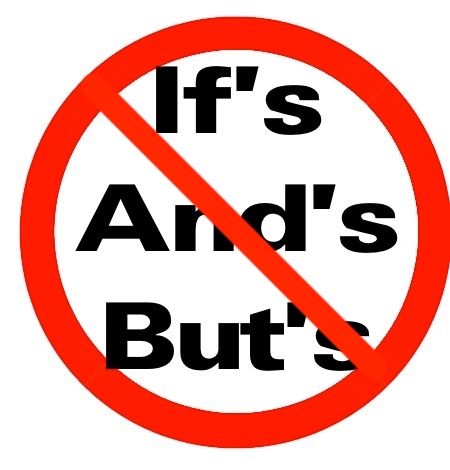long-term weight loss almost impossible
http://news.ca.msn.com/local/edmonton/obesity-research-confirms-long-term-weight-loss-almost-impossible-5
There's a disturbing truth that is emerging from the science of obesity. After years of study, it's becoming apparent that it's nearly impossible to permanently lose weight.
As incredible as it sounds, that's what the evidence is showing. For psychologist Traci Mann, who has spent 20 years running an eating lab at the University of Minnesota, the evidence is clear. "It couldn't be easier to see," she says. "Long-term weight loss happens to only the smallest minority of people."
We all think we know someone in that rare group. They become the legends — the friend of a friend, the brother-in-law, the neighbour — the ones who really did it.
But if we check back after five or 10 years, there's a good chance they will have put the weight back on. Only about five per cent of people who try to lose weight ultimately succeed, according to the research. Those people are the outliers, but we cling to their stories as proof that losing weight is possible.
"Those kinds of stories really keep the myth alive," says University of Alberta professor Tim Caulfield, who researches and writes about health misconceptions. "You have this confirmation bias going on where people point to these very specific examples as if it's proof. But in fact those are really exceptions."
Our biology taunts us, by making short-term weight loss fairly easy. But the weight creeps back, usually after about a year, and it keeps coming back until the original weight is regained or worse.
This has been tested in randomized controlled trials where people have been separated into groups and given intense exercise and nutrition counselling.
Even in those highly controlled experimental settings, the results show only minor sustained weight loss.
When Traci Mann analyzed all of the randomized control trials on long-term weight loss, she discovered that after two years the average amount lost was only one kilogram, or about two pounds, from the original weight.
Tiptoeing around the truth
So if most scientists know that we can't eat ourselves thin, that the lost weight will ultimately bounce back, why don't they say so?
Tim Caulfield says his fellow obesity academics tend to tiptoe around the truth. "You go to these meetings and you talk to researchers, you get a sense there is almost a political correctness around it, that we don't want this message to get out there," he said.
"You'll be in a room with very knowledgeable individuals, and everyone in the room will know what the data says and still the message doesn't seem to get out."
In part, that's because it's such a harsh message. "You have to be careful about the stigmatizing nature of that kind of image," Caulfield says. "That's one of the reasons why this myth of weight loss lives on."
Health experts are also afraid people will abandon all efforts to exercise and eat a nutritious diet — behaviour that is important for health and longevity — even if it doesn't result in much weight loss.
Traci Mann says the emphasis should be on measuring health, not weight. "You should still eat right, you should still exercise, doing healthy stuff is still healthy," she said. "It just doesn't make you thin."
We are biological machines
But eating right to improve health alone isn't a strong motivator. The research shows that most people are willing to exercise and limit caloric intake if it means they will look better. But if they find out their weight probably won't change much, they tend to lose motivation.
That raises another troubling question. If diets don't result in weight loss, what does? At this point the grim answer seems to be that there is no known cure for obesity, except perhaps surgically shrinking the stomach.
Research suggests bariatric surgery can induce weight loss in the extremely obese, improving health and quality of life at the same time. But most people will still be obese after the surgery. Plus, there are risky side effects, and many will end up gaining some of that weight back.
If you listen closely you will notice that obesity specialists are quietly adjusting the message through a subtle change in language.
These days they're talking about weight maintenance or "weight management" rather than "weight loss."
It's a shift in emphasis that reflects the emerging reality. Just last week the headlines announced the world is fatter than it has ever been, with 2.1 billion people now overweight or obese, based on an analysis published in the online issue of the British medical journal The Lancet.
Researchers are divided about why weight gain seems to be irreversible, probably a combination of biological and social forces. "The fundamental reason," Caulfield says, "is that we are very efficient biological machines. We evolved not to lose weight. We evolved to keep on as much weight as we possibly can."
Lost in all of the noise about dieting and obesity is the difficult concept of prevention, of not putting weight on in the first place.
The Lancet study warned that more than one in five kids in developed countries are now overweight or obese. Statistics Canada says close to a third of Canadian kids under 17 are overweight or obese. And in a world flooded with food, with enormous economic interest in keeping people eating that food, what is required to turn this ship around is daunting.
"An appropriate rebalancing of the primal needs of humans with food availability is essential," University of Oxford epidemiologist Klim McPherson wrote in a Lancet commentary following last week's study. But to do that, he suggested, "would entail curtailing many aspects of production and marketing for food industries."
Perhaps, though, the emerging scientific reality should also be made clear, so we can navigate this obesogenic world armed with the stark truth — that we are held hostage to our biology, which is adapted to gain weight, an old evolutionary advantage that has become a dangerous metabolic liability.
There's a disturbing truth that is emerging from the science of obesity. After years of study, it's becoming apparent that it's nearly impossible to permanently lose weight.
As incredible as it sounds, that's what the evidence is showing. For psychologist Traci Mann, who has spent 20 years running an eating lab at the University of Minnesota, the evidence is clear. "It couldn't be easier to see," she says. "Long-term weight loss happens to only the smallest minority of people."
We all think we know someone in that rare group. They become the legends — the friend of a friend, the brother-in-law, the neighbour — the ones who really did it.
But if we check back after five or 10 years, there's a good chance they will have put the weight back on. Only about five per cent of people who try to lose weight ultimately succeed, according to the research. Those people are the outliers, but we cling to their stories as proof that losing weight is possible.
"Those kinds of stories really keep the myth alive," says University of Alberta professor Tim Caulfield, who researches and writes about health misconceptions. "You have this confirmation bias going on where people point to these very specific examples as if it's proof. But in fact those are really exceptions."
Our biology taunts us, by making short-term weight loss fairly easy. But the weight creeps back, usually after about a year, and it keeps coming back until the original weight is regained or worse.
This has been tested in randomized controlled trials where people have been separated into groups and given intense exercise and nutrition counselling.
Even in those highly controlled experimental settings, the results show only minor sustained weight loss.
When Traci Mann analyzed all of the randomized control trials on long-term weight loss, she discovered that after two years the average amount lost was only one kilogram, or about two pounds, from the original weight.
Tiptoeing around the truth
So if most scientists know that we can't eat ourselves thin, that the lost weight will ultimately bounce back, why don't they say so?
Tim Caulfield says his fellow obesity academics tend to tiptoe around the truth. "You go to these meetings and you talk to researchers, you get a sense there is almost a political correctness around it, that we don't want this message to get out there," he said.
"You'll be in a room with very knowledgeable individuals, and everyone in the room will know what the data says and still the message doesn't seem to get out."
In part, that's because it's such a harsh message. "You have to be careful about the stigmatizing nature of that kind of image," Caulfield says. "That's one of the reasons why this myth of weight loss lives on."
Health experts are also afraid people will abandon all efforts to exercise and eat a nutritious diet — behaviour that is important for health and longevity — even if it doesn't result in much weight loss.
Traci Mann says the emphasis should be on measuring health, not weight. "You should still eat right, you should still exercise, doing healthy stuff is still healthy," she said. "It just doesn't make you thin."
We are biological machines
But eating right to improve health alone isn't a strong motivator. The research shows that most people are willing to exercise and limit caloric intake if it means they will look better. But if they find out their weight probably won't change much, they tend to lose motivation.
That raises another troubling question. If diets don't result in weight loss, what does? At this point the grim answer seems to be that there is no known cure for obesity, except perhaps surgically shrinking the stomach.
Research suggests bariatric surgery can induce weight loss in the extremely obese, improving health and quality of life at the same time. But most people will still be obese after the surgery. Plus, there are risky side effects, and many will end up gaining some of that weight back.
If you listen closely you will notice that obesity specialists are quietly adjusting the message through a subtle change in language.
These days they're talking about weight maintenance or "weight management" rather than "weight loss."
It's a shift in emphasis that reflects the emerging reality. Just last week the headlines announced the world is fatter than it has ever been, with 2.1 billion people now overweight or obese, based on an analysis published in the online issue of the British medical journal The Lancet.
Researchers are divided about why weight gain seems to be irreversible, probably a combination of biological and social forces. "The fundamental reason," Caulfield says, "is that we are very efficient biological machines. We evolved not to lose weight. We evolved to keep on as much weight as we possibly can."
Lost in all of the noise about dieting and obesity is the difficult concept of prevention, of not putting weight on in the first place.
The Lancet study warned that more than one in five kids in developed countries are now overweight or obese. Statistics Canada says close to a third of Canadian kids under 17 are overweight or obese. And in a world flooded with food, with enormous economic interest in keeping people eating that food, what is required to turn this ship around is daunting.
"An appropriate rebalancing of the primal needs of humans with food availability is essential," University of Oxford epidemiologist Klim McPherson wrote in a Lancet commentary following last week's study. But to do that, he suggested, "would entail curtailing many aspects of production and marketing for food industries."
Perhaps, though, the emerging scientific reality should also be made clear, so we can navigate this obesogenic world armed with the stark truth — that we are held hostage to our biology, which is adapted to gain weight, an old evolutionary advantage that has become a dangerous metabolic liability.
0
Replies
-
Impossible seems like a poor word choice to me - saying that it's unlikely is more accurate. At the end of the day, I'm failing to see the biological forces that conspire to cause you to regain weight, unless complacency and overeating once again are "biological forces." From a biological perspective, if you can lose the weight, you can maintain the weight loss. Now from a social perspective, what's very common is for people to become complacent and revert to their old habits, and to the extent they lost muscle while losing weight, their old habits can lead to them regaining their lost weight and potentially even more.0
-
Isn't this the reason slow is best?
Idk how true this is. I haven't a
pool of case studies in my back pocket.0 -
The main reason is because of so called "diets" that people use. Once they reach their goal, the diet is over. And they can now eat what they want, because they are no longer on a diet. Those that succeed to not diet, but rather modify their lifestyle. Lose weight by counting calories. Eat whatever you want as long as it fits your calorie budget. Don't do it to diet, do it as a way of life. Then when you reach your goal, your goal changes. And your calorie budget changes to reflect that. But you continue living the same lifestyle.
I don't care what any study says, you will not put the weight back on unless you eat more calories than you burn.0 -
As djeffreys10 mentioned, "diets" are the culprit.
By doing some sort of pre-made plan and following it, people lose weight. Then they stop following it and resume their previous behavior, resulting in regaining the weight.
Overall, going slower, with realistic goals and spot on monitoring of the diet, as most of us do here on MFP, does result in weight loss.0 -
The main reason is because of so called "diets" that people use. Once they reach their goal, the diet is over. And they can now eat what they want, because they are no longer on a diet. Those that succeed to not diet, but rather modify their lifestyle. Lose weight by counting calories. Eat whatever you want as long as it fits your calorie budget. Don't do it to diet, do it as a way of life. Then when you reach your goal, your goal changes. And your calorie budget changes to reflect that. But you continue living the same lifestyle.
I don't care what any study says, you will not put the weight back on unless you eat more calories than you burn.
I agree with the above quote!
Why would you share this LilRicki? to take away motivation, hope, pride? I think the type of dieting might be the downfall to keeping the weight off so I refuse to have surgery or go on some pre-made 'diet' I simply have learned (and am learning) that what you have to do is watch your calorie intake, and exercise... I use to think you could do it without the exercise and some can but I am not one of them. So I am learning what exercises I can do with my physical limits and that I can do depending on weather (no more excuses)
I eat a normal diet, but I limit my calories in other words I have learned portion sizes! I also know there are foods that are once in a blue moon treats and those did to be consumed in a portion also. I can walk into anyone's house and pick from what is there and eat with you. I also know by common sense and research that my 'ideal' weight will not increase my maintained calories by very much so I need to learn to live this life with these smart choices.... yes it is that simple.0 -
http://www.weightymatters.ca/2014/06/is-it-really-scientifically-impossible.html?m=1
A rebutal to this article...helps when your buddy just graduated from Harvard with a doctorate in psychology with a focus on obesity lol0 -
I don't buy the notion that you "must eat whatever you want" or that "diets" are inherently more subject to failure than basic IIFYM. That's a nice way to pat yourself on the back for following IIFYM, but there's absolutely no reason to believe that you can't follow a "more restrictive" plan and still see success. I will agree though that if you view it as a temporary change and only "diet" until you reach your goal, at which point you revert to your hold habits, you're setting yourself up for failure. But if you cut using IIFYM and revert to your old habits once you reach your goal, you're equally as screwed.
 0
0 -
I don't buy the notion that you "must eat whatever you want" or that "diets" are inherently more subject to failure than basic IIFYM. That's a nice way to pat yourself on the back for following IIFYM, but there's absolutely no reason to believe that you can't follow a "more restrictive" plan and still see success. I will agree though that if you view it as a temporary change and only "diet" until you reach your goal, at which point you revert to your hold habits, you're setting yourself up for failure. But if you cut using IIFYM and revert to your old habits once you reach your goal, you're equally as screwed.

exactly! I'm having a great discussion on my facebook page about this too...if you do what you did before, you're going to gain weight...if you truly change your lifestyle, than you're not going to gain it back. Seems pretty simple to me, but then again, I've never reached goal weight lol0 -
I don't buy the notion that you "must eat whatever you want" or that "diets" are inherently more subject to failure than basic IIFYM. That's a nice way to pat yourself on the back for following IIFYM, but there's absolutely no reason to believe that you can't follow a "more restrictive" plan and still see success. I will agree though that if you view it as a temporary change and only "diet" until you reach your goal, at which point you revert to your hold habits, you're setting yourself up for failure. But if you cut using IIFYM and revert to your old habits once you reach your goal, you're equally as screwed.

Nowhere did I mention IIFYM. And nowhere did I say you can't follow a more restictive plan and see success. I will say that there is not reason to do so, but to each their own. Oh, andDon't do it to diet, do it as a way of life. Then when you reach your goal, your goal changes. And your calorie budget changes to reflect that. But you continue living the same lifestyle.
I don't care what any study says, you will not put the weight back on unless you eat more calories than you burn.0 -
dj, I thought he was talking to me because I do IIFYM0
-
The main reason is because of so called "diets" that people use. Once they reach their goal, the diet is over. And they can now eat what they want, because they are no longer on a diet. Those that succeed to not diet, but rather modify their lifestyle. Lose weight by counting calories. Eat whatever you want as long as it fits your calorie budget. Don't do it to diet, do it as a way of life. Then when you reach your goal, your goal changes. And your calorie budget changes to reflect that. But you continue living the same lifestyle.
I don't care what any study says, you will not put the weight back on unless you eat more calories than you burn.
Agreed. The study showed most people gained back their weight, but failed to show how they lost it in the first place. I think it's unfortunate to have studies like this being done anyway (such a waste of dollars) and ultimately an article which will easily give some people just enough reason to not even try (I mean studies show it's a waste of time anyway right??) and for those who try and fail, an easy out. No accountability. "Studies show I didn't stand a chance." People need to be built up, to know that they CAN do it, nothing creates defeat stronger than being told you're going to be defeated.
**edit to state - I should add, that I fall into the percentage of people that reached goal, lost 90lbs and gained back all of it. I reached goal, said life was good, allowed a surgery to be my 'reason to not keep working' and returned back to old nasty habits ie) sitting on *kitten*, not moving, eating all of the foods. It's a mind set ultimately, I mentally accepted that I was just going to be sitting on my duff, and believed that after I was done sitting on my duff that I could magically maintain being fit and healthy, when that didn't happen I felt sorry for myself and kept the bad habits. This time around I know better and intend to make sure it's a life change. I follow IIFYM as well, there's no point in giving up foods etc. because it's not lifetime sustainable.0 -
And this is what I kept thinking as I read this whole article:



I could use this article as an excuse or I could keep looking at pics of people like this guy. I'm guessing he didn't take the obvious excuse so he probably wouldn't take this one. 0
0 -
And this is what I kept thinking as I read this whole article:



I could use this article as an excuse or I could keep looking at pics of people like this guy. I'm guessing he didn't take the obvious excuse so he probably wouldn't take this one.
^^ That last one is awesome!0 -
The main reason is because of so called "diets" that people use. Once they reach their goal, the diet is over. And they can now eat what they want, because they are no longer on a diet. Those that succeed to not diet, but rather modify their lifestyle. Lose weight by counting calories. Eat whatever you want as long as it fits your calorie budget. Don't do it to diet, do it as a way of life. Then when you reach your goal, your goal changes. And your calorie budget changes to reflect that. But you continue living the same lifestyle.
I don't care what any study says, you will not put the weight back on unless you eat more calories than you burn.
I have to conclude he is right!0
This discussion has been closed.
Categories
- All Categories
- 1.4M Health, Wellness and Goals
- 397.1K Introduce Yourself
- 44.2K Getting Started
- 260.9K Health and Weight Loss
- 176.3K Food and Nutrition
- 47.6K Recipes
- 232.8K Fitness and Exercise
- 457 Sleep, Mindfulness and Overall Wellness
- 6.5K Goal: Maintaining Weight
- 8.7K Goal: Gaining Weight and Body Building
- 153.4K Motivation and Support
- 8.3K Challenges
- 1.3K Debate Club
- 96.5K Chit-Chat
- 2.6K Fun and Games
- 4.6K MyFitnessPal Information
- 16 News and Announcements
- 18 MyFitnessPal Academy
- 1.4K Feature Suggestions and Ideas
- 3.1K MyFitnessPal Tech Support Questions







